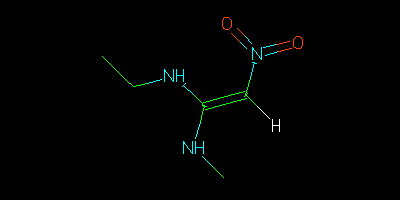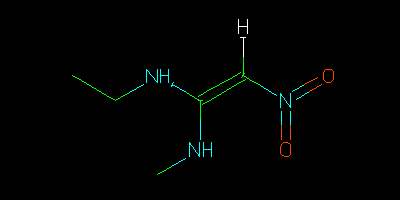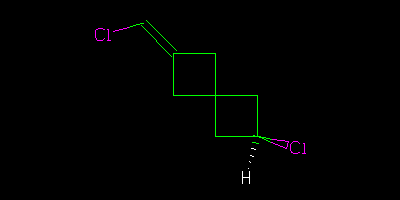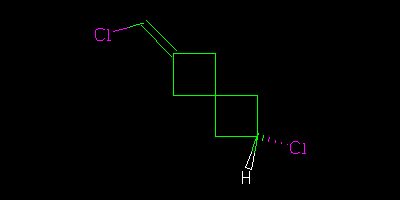#jiscopenbib #okfn
The Open Knowledge Foundation has been working in conjunction with JISC to define various components of Open Scholarship, and now we have come to an important milestone for Open Bibliography. The OKF has run an Open Bibliography list since 201002 : http://lists.okfn.org/pipermail/open-bibliography/2010-February/000000.html . This has attracted a lot of active contributors from a wide range of countries. It’s also spawned a technical list http://lists.okfn.org/pipermail/openbiblio-dev/2010-June/000001.html . In June the JISC funded us (University of Cambridge and OKF) in the “Open Bibliography” project. As a consequence of these activities we have now come up with a draft set of principles on Open Bibliography.
Adrian Pohl took our Panton Principles for Open Data in science and recrafted them to support bibliography. He’s also driven the process through (open) skype telcons and email discussions. We set ourselves a deadline of yesterday for DRAFT principles and he’s published them on openbiblio.net:
http://openbiblio.net/2010/10/15/principles-for-open-bibliographic-data/
PLEASE READ THESE . It is vitally important that you agree with my analysis or challenge it. Apathy is an irresponsible approach. Note that I am NOT talking about COLLECTIONS of bibliographic records (which may be copyrightable in some jurisdictions) but individual records which are uncopyrightable. Here are my comments.
A BIBLIOGRAPHIC RECORD IS BY ITS NATURE IS IN THE PUBLIC DOMAIN.
This is very important. It is not a matter for debate. It is a fact. It is the law. The problem is that some people don’t realise this and others don’t respect it. So I’ll repeat
A BIBLIOGRAPHIC RECORD IS BY ITS NATURE IS IN THE PUBLIC DOMAIN.
I am not arguing that it would be valuable for it to be in the public domain. Or that it is a moral imperative that it should be. I’m stating that IT IS. And we are asking the whole world to restate that a billion times.
A bibliographic record is used to identify a work (book, article, journal, thesis, newspaper, etc. – I am omitting films, music etc. but the same imperative holds for them). I’ll show you what I mean…
I have a book on my desk. Here are some FACTS about it. They are in the public domain. I am preserving the case of the text, but not reporting the fonts. Information is either copied from the book or my observations:
====================================
Title: THE MYTHICAL MAN-MONTH
Author: FREDERICK P. BROOKS, JR
Size: 23 cm x 15.4 cm (measured by Peter Murray-Rust, 20101016:11:16:BST – NB all other observations by this person are abbreviated PMR)
Colour: turquoise and black with white writing (PMR)
Subtitle: ESSAYS ON SOFTWARE ENGINEERING
Edition: ANNIVERSARY EDITION WITH FOUR NEW CHAPTERS
Owner: P.MURRAY-RUST (handwritten on inside front cover)
Cover drawing: “Cover drawing: C. R. Knight, Mural of the La Brea Tar Pits, Courtesy of the George C. Page Museum of La Brea Discoveries, The Natural History Museum of Los Angeles County” [from the front matter]
Library of Congress Cataloguing-in-Publication Data
Brooks, Frederick P., Jr. (Frederick Philips)
The mythical man-month : essays on software engineering /
Frederick P. Brooks, Jr. – Anniversary ed.
p. cm.
Includes bibliographical references and index.
ISBN 0-201-83595-9
-
Software engineering I. Title.
QA76.758.B75 1995
005.1’068-dc20 94-36653
CIP
Copyright © 1995 by Addison-Wesley Publishing Company, Inc.
Printed in the United States of America.
1 2 3 4 5 6 7 8 9 10—MA—98979695
This is all factual information. I have simply recorded it. There are actually at least two mistakes in my record – see if you can find them. Millions of bibliographic entries contain errors. It is the hope that Open Bibliography will help to identify some, but that’s another story.
Here are some more FACTS recorded by PMR:
There are 19 chapters and an epilogue
The “Notes and References” section runs from p. 293-308
The index runs from p. 309-322
The last page in the book is p. 322
There is a picture on p. 2
There is a figure on p. 5
I have published these observations. They are therefore de facto in the public domain. If anyone disagrees with this analysis please challenge me. If, in fact, I do not have the absolute right to make and publish everything above then indeed we have entered Nineteen-Eighty-Four and Fahrenheit 451.
The main thrust of the Open Bibliographic Principles (1-4) is:
- To identify what is meant by a bibliographic record
- To assert that is IS in the public domain
- To agree how to publish it so that it can be used, re-used and redistributred without permission
I am aware that we may need some redrafting around the licences – are we restating that the record IS in the PD or are we dedicating it to it?
Bibliographic Principle 5 is different in nature. There are some parts of a bibliographic record which are subjective (i.e. not FACTUAL) and which some regard as creative and copyrightable. This principle does not seek to determine the legality but to assert that they are beneficial to all parties (author, publisher, library, and of course reader). They are generally not concerned with identification, but more with discoverability, and include:
- Abstracts
- Keywords
- Subject headings
- Reviews
In the fifth principle we are asking anyone who might consider they had a right to this material (I will not call them the copyright owners as that gives false clarification) to donate this material into the public domain. To say that
- “we will make our subject classification available in an OKD-compliant way so that it makes it easier to find the work”
- “we will make our abstract available in an OKD-compliant way so that it makes it for readers to know whether they wish to retrieve the work”
And to do this in a clear manner so that everyone (including robots) knows that they have done this.






 and
and

